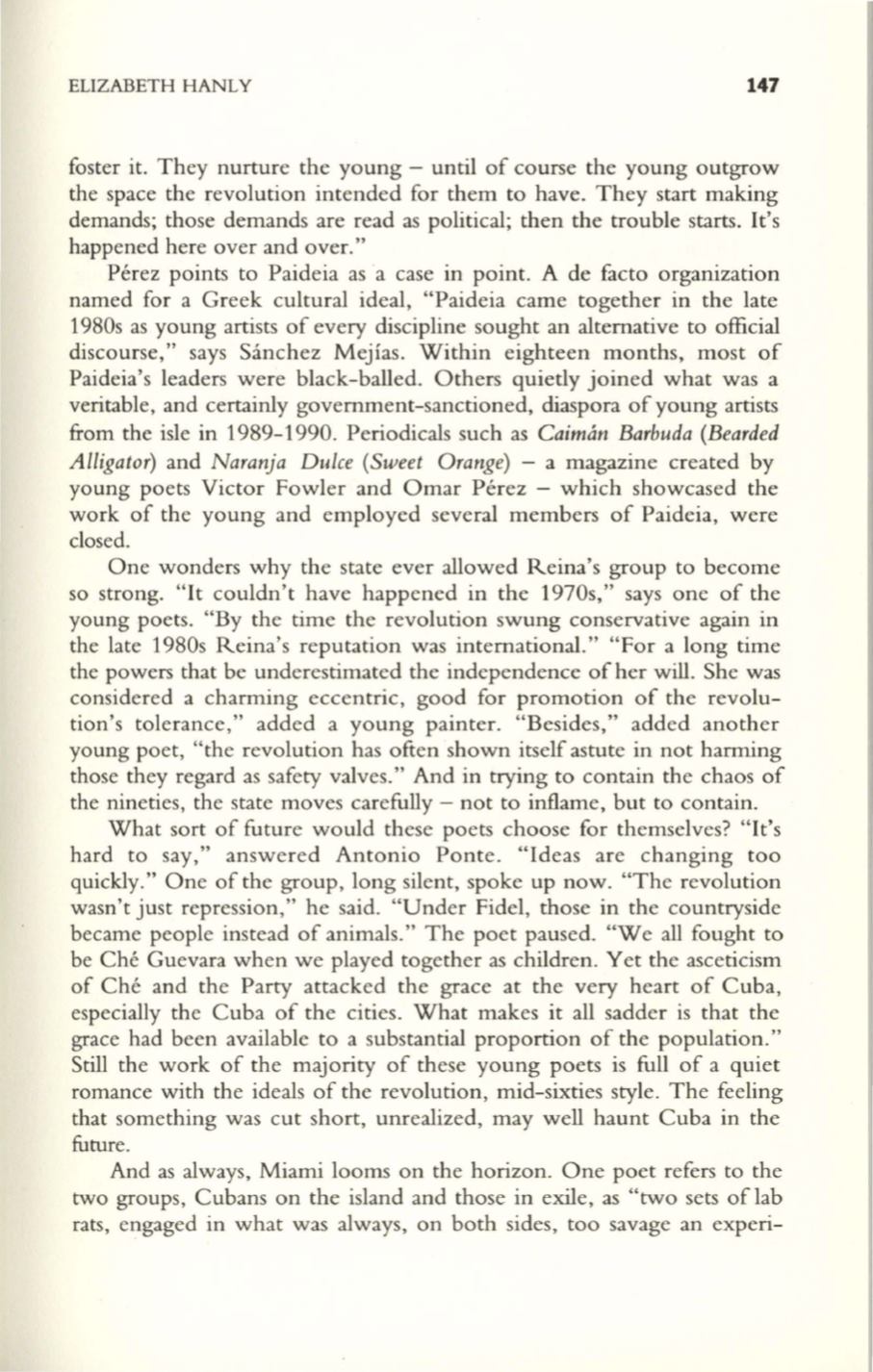
ELIZABETH HANLY
147
foster it. They nurture the young - until of course the young outgrow
the space the revolution intended for them to have. They start making
demands; those demands are read as political; then the trouble starts. It's
happened here over and over."
Perez points to Paideia as a case in point. A de facto organization
named for a Greek cultural ideal, "Paideia came together in the late
1980s as young artists of every discipline sought an alternative to official
discourse," says Sanchez Mejias. Within eighteen months, most of
Paideia's leaders were black-balled. Others quietly joined what was a
veritable, and certainly government-sanctioned, diaspora of young artists
from the isle in 1989-1990. Periodicals such as
Caiman Barbuda (Bearded
Alligator)
and
Naranja Dulce (Sweet Orange)
-
a magazine created by
young poets Victor Fowler and Omar Perez - which showcased the
work of the young and employed several members of Paideia, were
closed.
One wonders why the state ever allowed Reina's group to become
so strong. "It couldn't have happened in the 1970s," says one of the
young poets. "By the time the revolution swung conservative again in
the late 1980s Reina's reputation was international." "For a long time
the powers that be underestimated the independence of her will. She was
considered a charming eccentric, good for promotion of the revolu–
tion's tolerance," added a young painter. "Besides," added another
young poet, "the revolution has often shown itself astute in not harming
those they regard as safety valves." And in trying to contain the chaos of
the nineties, the state moves carefully - not to inflame, but to contain.
What sort of future would these poets choose for themselves? "It's
hard to say," answered Antonio Ponte. "Ideas are changing too
quickly." One of the group, long silent, spoke up now. "The revolution
wasn't just repression," he said. "Under Fidel, those in the countryside
became people instead of animals." The poet paused. "We all fought to
be Che Guevara when we played together as children. Yet the asceticism
of Che and the Party attacked the grace at the very heart of Cuba,
especially the Cuba of the cities. What makes it all sadder is that the
grace had been available to a substantial proportion of the population."
Still the work of the majority of these young poets is full of a quiet
romance with the ideals of the revolution, mid-sixties style. The feeling
that something was cut short, unrealized, may well haunt Cuba in the
future.
And as always, Miami looms on the horizon. One poet refers to the
two groups, Cubans on the island and those in exile, as "two sets of lab
rats, engaged in what was always, on both sides, too savage an experi-


